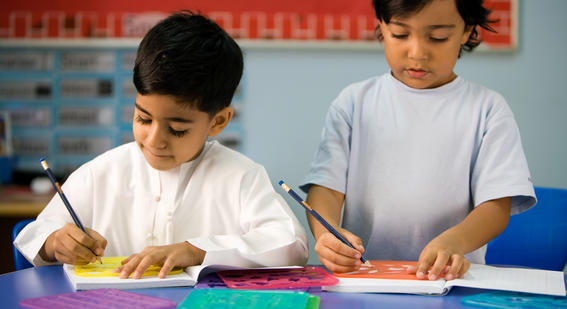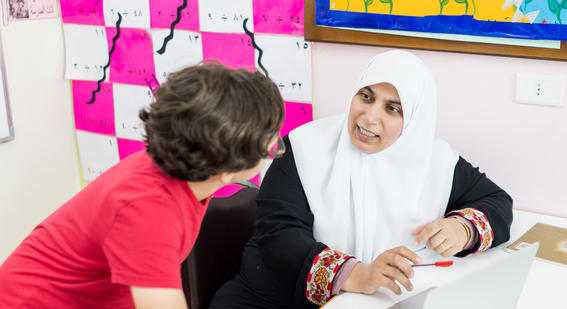Arabic Literacy
When you enhance Arabic literacy, you enable excellence in education overall. Arabic language skills connect learners to the Arab world’s rich heritage of achievements in art, philosophy, culture, science and religion, and enables international collaboration. But achieving this starts with ensuring your learners gain a sufficient level of Arabic literacy to access a broader education.
Through our work with various Arabic-speaking countries around the world, we have developed our understanding of the interrelated challenges of teaching and learning Arabic. These include the complexity of the Arabic language, limited exposure to Modern Standard Arabic (MSA) and the dominance of local dialects and English. Our experience shows that a lack of high-quality Arabic resources, appropriate assessments and professional development for Arabic teachers can also be barriers to progress.
Working in partnership with both local and international experts, we review your Arabic language programme and co-create a customised language policy and curriculum that is consistent with the national vision. We will support this with teaching and learning materials that are sensitive to local contexts and relevant to today’s learners and their interests.
Student-centred Arabic teaching methods often provide opportunities for progress, improving learner attitudes to Arabic as a subject. We’ll co-design and implement training programmes for teachers, school leaders and content creators. If needed, we will work together to update your Arabic language assessment framework to effectively monitor learner progress.
We are actively contributing to the global development of Arabic language education, through the development of IGCSE Arabic syllabuses, resources and assessments used by learners all over the world. Together, we will develop a modern, innovative and engaging Arabic literacy programme that improves learning outcomes.





